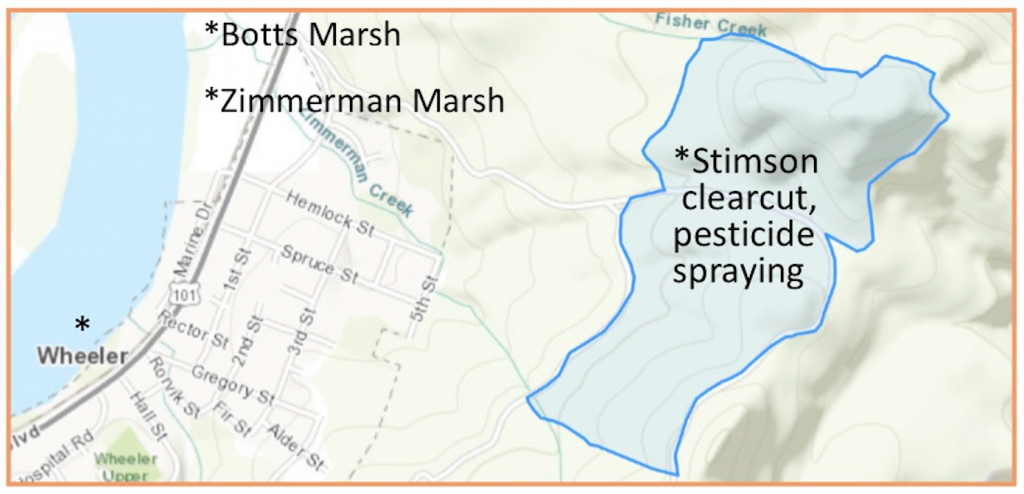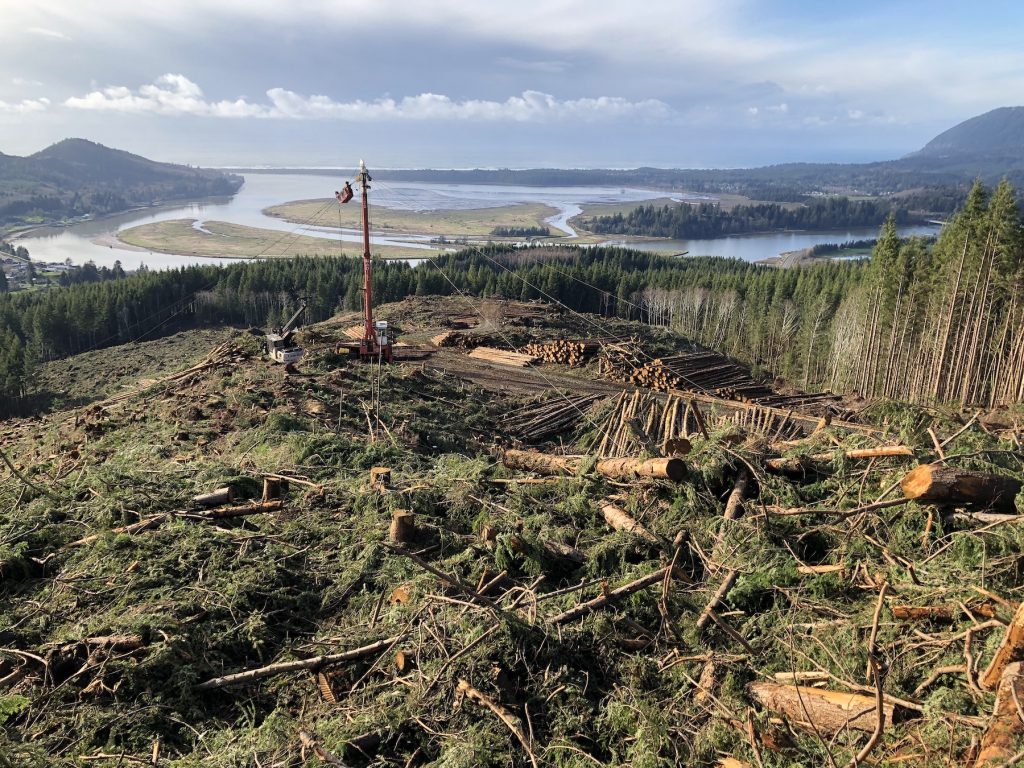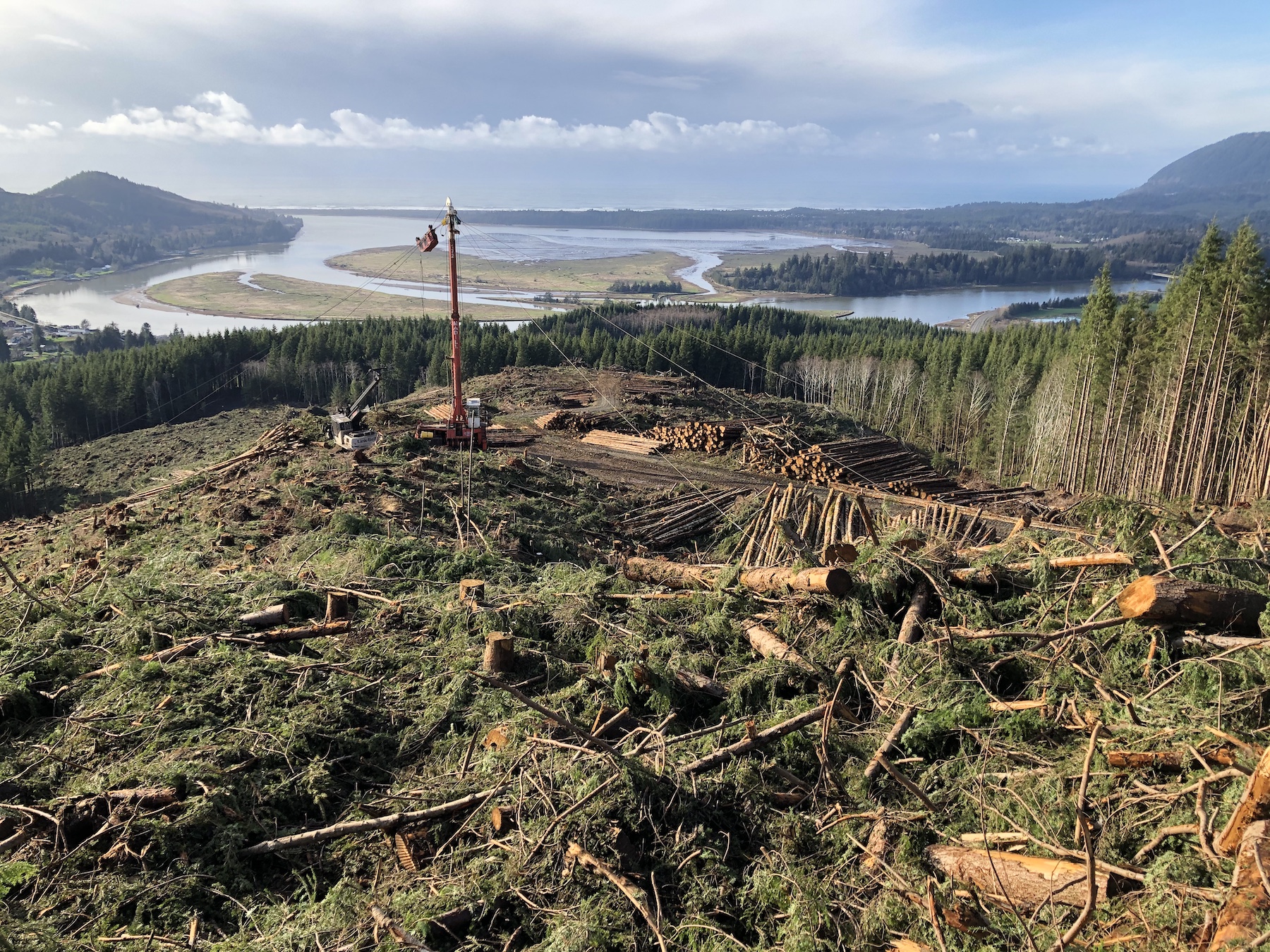Jacob Hilger from Stimson Lumber sent the following urgent message regarding pesticide spraying of their clearcut land adjacent to Wheeler: “…..planning on starting the herbicide application on Blackbird on Tuesday, September 8, 2020. The operation will begin as soon as it is light enough to work, about 06:00 a.m. This, of course, is assuming that the weather is favorable for the operation.”
Stimson Lumber will be ground-spraying pesticides on about 93 acres of their clearcut land (outlined in blue on the map above) that is within close proximity of Wheeler, Oregon residential areas. Pesticides to be used may include aminopyralid, metsulfuron methyl, glyphosate, sulfometuron methyl, and Syl-Tac. There are valid reasons to be concerned about the health effects of these pesticide applications..
When asked whether Wheeler residents have valid reasons to be concerned about these pesticides even though they are not to be applied via aerial spraying, but, rather, through backpack, ground spraying, a professor who has advanced degrees in biology and environmental toxicology said that, although aerial spraying would be worse than ground spraying, there are definite reasons for the community to be concerned.
Here are some of his comments:
1.Spray droplets are volatile and can drift down from the clearcut, close to people, and into water sources, especially if it is breezy.
2. Some of these pesticides tend to be very persistent in the soil which can wash downhill into streams and salt marshes.
3. Some of these chemicals can remain volatile for as long as a year, and then revolatilize into the air in temperatures above 84 degrees. The listed pesticides can range in toxicity from being toxic to beneficial soil organisms to, in the case of glyphosate, probably carcinogenic to humans. Studies show that minute amounts of sulfometuron methyl (brand name: OUST) can disrupt plant reproduction. It can cause severe eye irritation and may cause some skin sensitization.
Here is the area of the Stimson Wheeler clearcut and it’s adjacency to sensitive watershed areas:

Those of us with North Coast Communities for Watershed Protection are also concerned about the workers who will be doing the spraying. Will they have adequate eye, skin, and respiratory protection? Given that the area to be sprayed can be quite breezy, this seems particularly important. Workers doing these types of contract jobs are often without health insurance. They could also be at a high risk of contracting Covid-19 at the worksite, as well as if they are transported as a group in vans.
The more that is learned about how these chemicals persist in the environment, destroy entire ecosystems, and risk both public health and the health of the environment, it becomes clear that their use needs to stop now. People are becoming more and more aware that forests play a critical role in our health and the health of the planet. Current forestry practices are risking our future and the future of Earth.


North Coast Communities for Watershed Protection (formerly known as Rockaway Beach Citizens for Watershed Protection), is a grassroots group seeking better protections for the water we drink, the air we breathe, and the forest we love. healthywatershed.org www.facebook.com/NCCWATERSHEDPROTECTION


